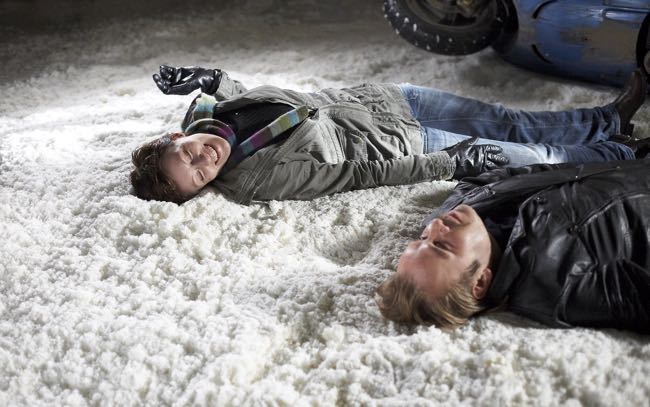By Ray Bennett
LOCARNO, Switzerland — The momentary distraction of a stolen kiss causes a train wreck in Austrian director Peter Payer’s haunting drama “Free to Leave,” (“Freigesprochen”), which explores the impact such guilt has on the individuals concerned.
Clear-eyed but compassionate, the film has an eerie quality that derives from the notion that almost anyone could be in a similar situation that dramatically changes the lives of so many people.
Screened in Competition at Locarno, it’s an intelligent drama that should travel beyond German-speaking territories and possibly invite an English-language version.
Based on Ordon von Horvath’s play “Judgment Day”, it begins with a body that falls from a bridge to strike the hard, frozen ground. Time shifts immediately to the bustle of a small town where the people are anxious because a strike by transport workers has affected the train timetables
Ferdinand (Robert Stadlober) decides to a take a later, slower train in order to spend extra time in bed with his sweetheart Anne (Lavinia Wilson). Thomas (Frank Giering, pictured with Wilson), however, spurns the attentions of his older wife Hanni (Corina Harfouch) as he must get to work promptly because his day will be hectic while he oversees all the railway traffic signals. His best friend, Josef (Alfred Dorfer) is off on his usual morning milk round.
Having seen off her boyfriend at the station, Anna stops into the control office to see Thomas, who’s like an older brother to her though she likes to flirt with him. As she larks about, she spontaneously kisses him, which takes his attention away from the control board.
In that fleeting moment, a signal is missed, a railway barrier is not lowered, and an express train powers into Josef’s mil truck. In the derailment, 22 people including Josef are killed and scores more are injured seriously.
The film explores the shattering impact of such an event less on the hurt and bereaved than on the ones responsible. Thomas and Anna are drawn together even as their relationship with others begins to fragment. It’s unremitting stuff and Payer handles it with insight as he demonstrates impressive cinematic technique.
Giering conveys his character’s draining sense of self-worth unerringly while Wilson portrays a woman as she spins out of control giddily. Harfouch contributes a convincing portrayal of a woman who tries staunchly to absorb the horrifying outcome of her husband’s waywardness.
The wintry landscape, captured well by cinematographer Andreas Berger, and a poignant score by Walter Cikan help deepen the film’s despairing mood.

